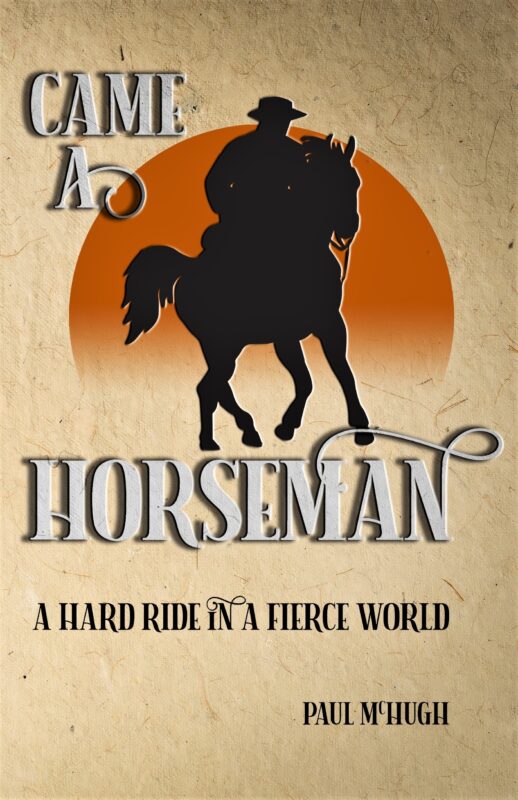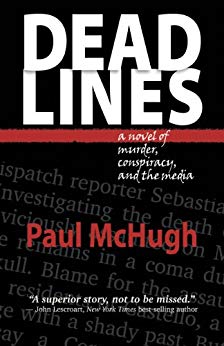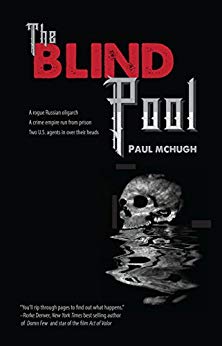
The most truthful comment to be made on religion is that it’s not one thing.

Religion can offer you inspiring, ethical guardrails, such as those lived out to the nth degree by the sweet-natured Francis of Assisi in 12th Century Italy.
On the other hand, his exact same faith can merely serve as a sanctimonious veneer, a rotting fig leaf draped over mendacity, abuse, malfeasance, and skullduggery of the most grotesque type. Consider the case of Torquemada, the Grand Inquisitor of 15th Century Spain, who tortured, hung and burned alive thousands of supposed heretics, so he could flail everyone toward the bosom of a loving god.
Of course, one need not gaze back over the centuries to find such heinous behavior.

How about taking a peek into last week?
Current head of the Russian Orthodox Church, Patriarch Kirill of Moscow, serves as Putin’s theological henchman in a massacre of Ukrainian civilians—all in the name of procuring the union of Russian-speaking believers under his spiritual leadership. Kirill dresses in fancy vestments and swings a fragrant censer as he strides toward that goal over the bloodied bodies of hundreds of dead children.

Remember the bad-ass King Herod of legend? Well, that dude ain’t got nothin’ on Kirill. And ol’ Kirill’s steadily gaining on Torquemada, too.
Well, enough about him. He’ll be dead himself one day. Then he’ll find out. Maybe. If the reality of what he believes exceeds what he seems to believe about it.
Triangulate the Astral
Neither personal fascination nor general repugnance should prevent a writer from taking religion into account while seeking to craft a narrative set on our Planet Earth. You simply have to understand that faith here can adopt many different forms, and it can charge off in every conceivable direction. Not to mention, a few inconceivable ones…
To compose realistic scenes in any area or era of this Earth, a fiction writer ought to consider all major belief systems that could apply. But one thing he or she cannot do, if realism is indeed the goal, is subtract every single such force from the picture.

Should you decide to try for inclusion, here’s a crucial step.
Bringing religion—or philosophy, for that matter—into a story requires that a writer grasp the faith of his characters in exactly the same way that the characters understand it. Depending on which system is being evaluated for inclusion, this may require a heap of research as well as perhaps a conceptual leap of acrobatic quality.
That Daring Young Man on His Flying Trap
In a newsletter just prior to this one, I discussed some of my more intense experiences in the Catholic seminary where I festered amid my teenage years. It may suggest to you that I subsequently had no difficulty in modeling Christian characters. That would be correct. However, upon such self-awarded laurels I do not rest.

At present, I’m finishing up a new novel that boasts a few Jewish characters. Frankly, attempting to design and direct these guys has posed a challenge. They’ve become both idealistic and cynical, wickedly humorous, often obstreperous—much like the real deal. However, since I studied the Old Testament as well as the New, and have enjoyed many Jewish friends over the years, and also plan to have some Jewish readers review my manuscript for accuracy when I’m done, I feel reasonably sure I can draw Judaic personages fairly. I also aim to make them entertaining. (Though I’ll likely nibble my fingernails down to the quick as I wait to see what my Jewish readers have to say.)
One thing I’ve not tried yet is creating a Buddhist character. Now, I’ve contemplated Buddhism for a good long while, even absorbed some practice into my daily life. But when I ultimately sit down to draft a Buddhist guy or gal, I plan to draw upon an event—or a chain of events—that happened to me some fifty years ago. This initial insight makes me feel that I j-u-s-t might be able to pull off a realistic Buddhist character.

I offer this anecdote to exemplify the kind of background research a writer might wish to undertake.
The Well of Souls
After I left the Catholic seminary in Miami, I went to Florida State in Tallahassee to complete my bachelor’s degree. I majored in English, with an emphasis on poetic composition. My first year at FSU, I lived in a coed dorm called DeGraf Hall. That dorm was a rambunctious menagerie of all sorts of colorful characters. One of the most memorable, though, was remarkably sedate: a young Vietnamese dude named Tuấn.

Tuấn was a unique figure in a lot of ways. He was our only Asian person of any stripe. He also was the scion of a well-to-do Saigon dynasty. His family had contrived to ship him out of the country whilst the Vietnam War was in full uproar. I’d guess they didn’t want to see a number-one-son drafted, then pitched into the meatgrinder. His own preference perhaps played a role; Tuấn never commented about the war, or made any sort of political or patriotic statement about his homeland.
He just didn’t seem the warrior type. The guy wasn’t shy and he wasn’t bold, simply quiet. Engaging in combat did not seem to be a point that could be located anywhere on his bandwidth.
He ate well—not in the dorm kitchen as I did, and not in FSU’s student dining halls either—he fed himself in the city’s best restaurants. And he cleaned up well, too, dressing in a natty Euro style that presented a vivid contrast to our prevailing hippy mufti. And that spiffy style fit him to a ‘T.’ Compared to the rest of us, Tuấn seemed to have zero money problems. In fact, after a few months of dorm living, he opted to rent a whole house for himself, far out in the countryside.
To Aspire to Esquire
I would not call us pals, yet we did cotton to each other. I admired his poise and reserve, and I think what he liked about me was that I took him seriously. He studied poetry, too. His English was strong enough for him to create highly readable compositions, yet his pieces seemed odd in a way that’s not easy to describe. His ultimate goal was to become a playwright. However, the scenes he gave me to read didn’t quite gel. I felt unable to buy into his characters or their situations. But I gave him my honest and unfiltered feedback, which he appreciated.

In fact, the whole time I knew him, just one type of interaction ever seemed to bother the guy.
When he lived among us in the dorm, many grew intrigued by his Buddhist background. He’d revealed he spent a couple of years training in a monastery. But when his mates in the dorm came up to ask him to explain Buddhism, Tuấn would always half-smile, roll his eyes slightly and say, “Oh, that shit.” And with this brusque, all-purpose brush-off, he’d dismiss the topic.
And yes, I must admit, I was one of those who asked. And the response he gave me was the same.
Okay. So, Tuấn moves out of our dorm, a few months pass. I run into him at the campus post office, and he says I should ride out and visit him at his house. It’s on a road loop that I often took to blow off some steam with a quick motorcycle frolic, so I say, yeah I’ll swing by on Saturday.
My Path to the Rose
When I arrive, he asks if I want tea. His new house is still sparsely furnished, so we sit on cushions piled around a small coffee table. The tea seems strangely floral to me, yet tasty. The table is decorated with one lush red rose, just beginning to expand from bud to bloom, set in a slim glass vase. We chat about this ‘n’ that, various professors and classes, our writing plans. As I leave, Tuấn says he’s enjoyed it, and I should come back again the following Saturday.
I’d enjoyed it too, so I do return. Our script for my second visit is similar. Tea, plus desultory chit-chat. The rose on the table at this point is fully unfurled, quite lovely to behold. It reminds me that I once wrote a poem called, “The Path Through the Rose.” He bids me to visit again in a week, and I agree.

Talk and tea, once more. The rose has lost its ichor and begun to seriously droop. Petals lay where they’ve fallen, like scraps of faded velvet, on a black lacquer tabletop now silvered by dust. That’s when I began to sense that something was up, since Tuấn was otherwise a meticulous housekeeper. I mean, his list of possessions might’ve been short, yet all his stuff tended to stay cleaned up and deftly arranged, as neat as the creases on his ironed slacks.
A Real Stem-Winder
Tuấn tells me to come back any time I like, but to call first. I choose to wait two weeks. We sit again at the table where the withered old rose petals are now spread around the base of the vase like a haphazard mandala. The stem is nothing more than a bent, shriveled twig, poking out of the dry, stained vase like a wee wizard’s abandoned staff.
Dust on the tabletop lies as thick as flour under a pastry baker’s rolling pin.
As we drink tea, this time we do not speak much. Instead, I find myself silently admiring the strange beauty of that long-dead rose, and Tuấn watches me do it. I let my mind drift back through all the various stages of its beauty, through the arising of its form, as well its descent. I realize that prior to this moment, I’d only thought of fresh, new and fragrant roses as lovely. And after they’d peaked, I’d proceed to ignore them.

As I depart, I say to Tuấn, “Thank you for teaching me about Buddhism.”
He says, “You’re welcome.”
I’ll provide an epigram to this episode by quoting what a Zen Buddhist nun said to me around twenty years later. “The Buddha does not enlighten people by talking to them. The Buddha enlightens people by going through birth and death with them.”
Walk the Talk
At this point, it should surprise no one that, when it comes to fully incorporating human beliefs in human stories, I’ve taken my own advice.
In my first novel, “The Search for Goodbye-to-Rains,” I send a central character, Steve Gitane, out across the entire U.S.A. on a mystic quest. In my second, “Deadlines,” I present one Colm MacCay as a lapsed Catholic; however, he has a brother who remains the abbot of a monastery. In my third, “The Blind Pool,” I introduce a rogue Russian oligarch who creates a whole mythology out of thin material in order to manipulate his followers. In my fourth, “Came A Horseman,” Kyle Skander is a Stoic philosopher who must deal with the adherents of a rural Christian cult. And in my newest work, due out soon from Bronzeville Books, there’s a young woman named Helene Berg, an orphan who has braced herself against the terrors of a Nazi invasion by clinging to her Lutheran faith.

I’m not doing this out of personal devotion to anything in particular. I’m doing it because faith and belief are part and parcel of our shared, human, psychological landscape. Such that, fairly often, even ardent non-believers find themselves forced to deal with it. At some level. (For a ton of cases in point, see: Abortion, America.)
Often, I try to render agreements or disputes in matters of belief in a clear and obvious fashion. Yet sometimes, I’ll just sneak them in with a modicum of subtlety, which is one more way conflicts (or their resolutions) crop up in life. Every confrontation doesn’t need to promptly plunge into a WrestleMania-like scenario.
So, if I ever put a character named Tuấn into a story, maybe I’ll identify him as a Buddhist, maybe I won’t. Yet even if not, you’ve now been briefed. You’ll already understand a person like that to a certain degree. I do intend to present him as altogether coy and clever. Much like the original.









